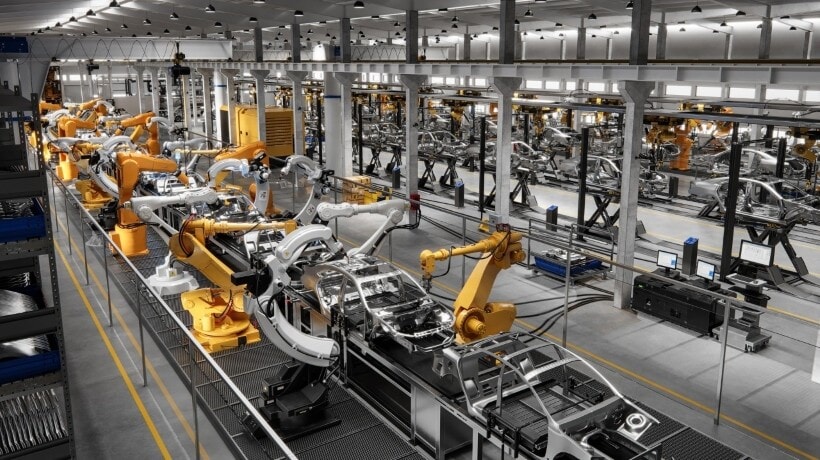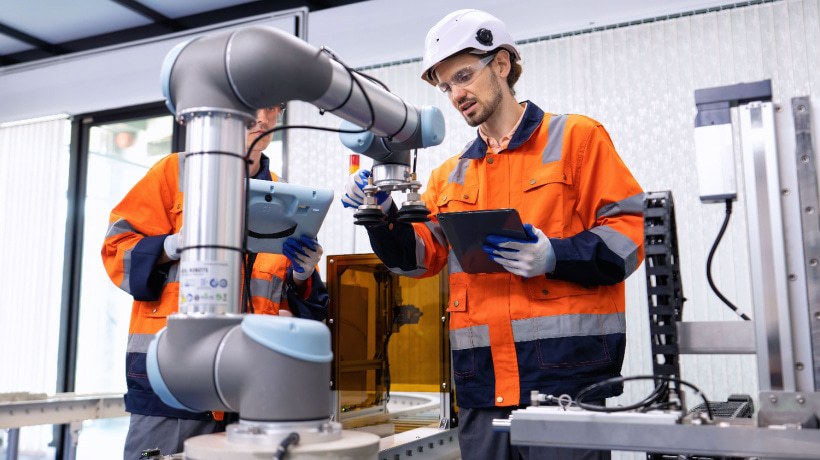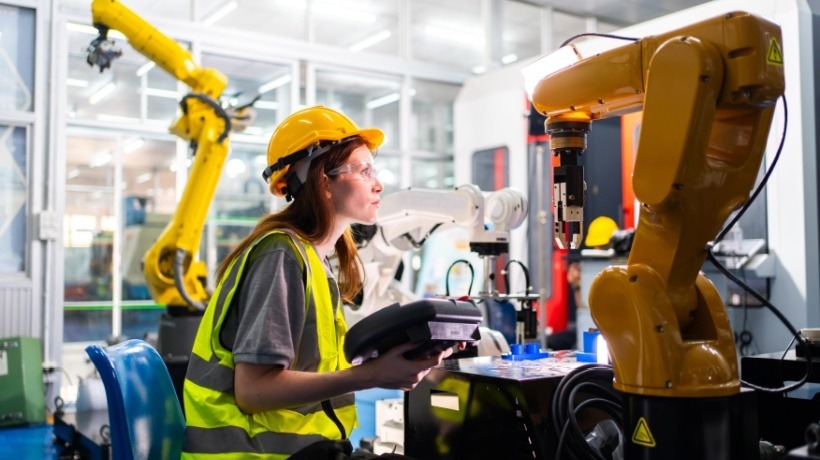Building Α Zero-Error Workforce
In today's manufacturing world, precision is the ultimate advantage. A single oversight can halt production, compromise worker safety, or ripple through global supply chains. From advanced plants in the US to automotive hubs in Europe and industrial mega-sites in the Middle East, manufacturers face mounting pressure to deliver efficiency, compliance, and innovation—all without error.
With global competition intensifying and Industry 4.0 transforming shop floors, traditional training is no longer enough. Manufacturers need learning strategies that not only keep pace with change but also drive measurable business impact.
Why Manufacturing Needs Α New Training Blueprint
- Safety And Compliance At The Core
Manufacturing environments carry inherent risks. Incidents involving machinery, chemicals, or fatigue can be devastating. While OSHA, EU directives, and regional standards set strict safety expectations, real impact comes when training moves beyond checklists to build a culture of zero errors.
- The Expanding Skills Gap
Automation, robotics, and digital twins are rewriting job descriptions. The demand for digitally fluent workers is rising, yet skills gaps persist across factories worldwide. Upskilling and reskilling are now essential to sustain productivity and innovation.
- Operational Efficiency Under Pressure
Just-in-time production, lean staffing, and volatile supply chains leave little margin for delays. Training that is modular, mobile-first, and embedded in daily workflows helps workers learn without disrupting output.
- Global Risks And Local Realities
US facilities face growing cybersecurity threats to production systems. European factories are under intense ESG and sustainability scrutiny. Middle Eastern manufacturers are scaling fast, needing consistent safety and compliance standards across expanding operations. Training must flex to these realities.
- Leadership For The Factory Of The Future
Supervisors and managers require more than technical know-how. Communication, decision-making, and problem-solving are critical to guide teams through disruption and foster a culture of continuous improvement.
Common Training Needs Ιn Modern Manufacturing
- Workplace safety and EHS programs: Covering machine operation, PPE, hazard identification, chemical handling, and environmental compliance.
- Regulatory and compliance training: Programs aligned to OSHA, EU directives, and regional labor laws that ensure adherence across global facilities.
- Quality and zero-defect training: Lean, Six Sigma, and continuous improvement methods that minimize waste and drive efficiency.
- Technology and automation skills: Training to operate robotics, IoT-enabled equipment, and AI-driven maintenance systems safely and effectively.
- Cybersecurity awareness: Preparing employees to recognize cyber threats and safeguard digitized production environments.
- ESG and sustainability training: Equipping workers with knowledge on energy efficiency, waste reduction, and compliance with environmental regulations.
- Leadership and soft skills: Building capabilities in communication, conflict management, and decision-making for frontline managers and supervisors.
The Path Forward
Manufacturing success is no longer defined by scale alone. It is measured by how safely, efficiently, and innovatively organizations can operate in an era of constant change.
By investing in targeted, role-specific training programs that address safety, compliance, digital fluency, and leadership, manufacturers can build resilient workforces capable of delivering zero errors and real impact.
Whether navigating OSHA standards in the US, meeting ESG mandates in Europe, or scaling responsibly in the Middle East, the blueprint for success is the same: training must evolve alongside the industry's transformation.
For manufacturers, the real question is not whether to modernize training—it is how quickly they can build a workforce prepared for the future.
Read More:
- Why Upskilling and Reskilling Are Critical to Building a Sustainable and Resilient Workforce
- Environmental, Social, and Governance (ESG) Training
- Leadership Training
- Soft Skills Training
FAQ
Traditional training doesn't keep up with the rapid changes in technology and global competition. Manufacturers need dynamic, scalable training that directly impacts business outcomes and addresses new technologies, efficiency, and compliance challenges.
Upskilling and reskilling are crucial for filling the skills gap caused by new technologies like automation and robotics. These programs ensure workers stay competitive and capable of handling evolving job roles.
Training should be modular and mobile-first, integrated into daily workflows, allowing workers to learn while maintaining productivity and minimizing disruption to production schedules.
Key training areas include:
- Safety and compliance: Machine operation, PPE, and hazard handling.
- Quality and Lean: Zero-defect practices and continuous improvement.
- Tech skills: Robotics, IoT, and AI system operation.
- Cybersecurity: Protecting production systems from digital threats.
- Leadership: Communication and decision-making for managers.
By investing in role-specific training focused on safety, compliance, technology, and leadership, manufacturers can ensure their workforce adapts quickly to evolving industry needs.










